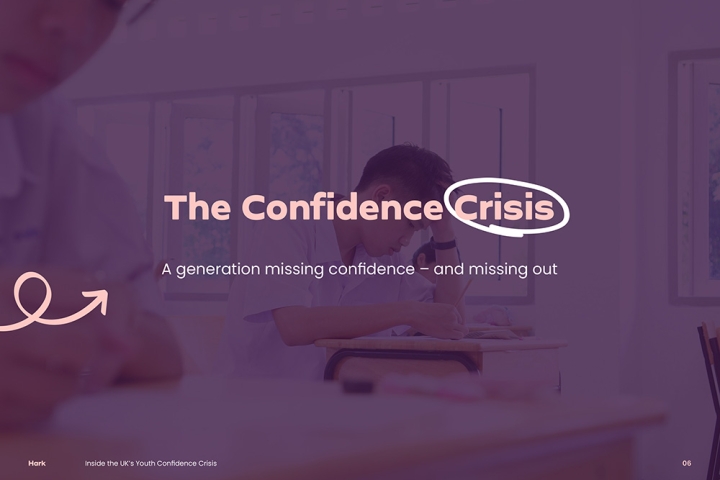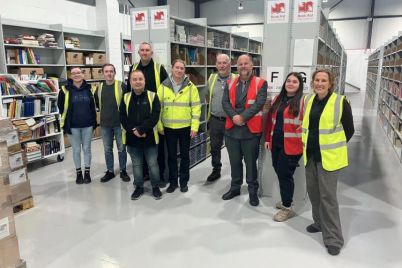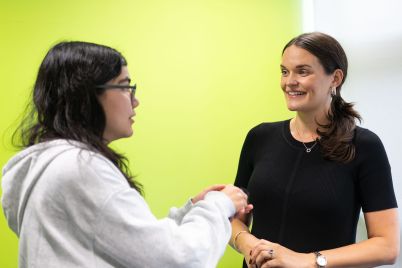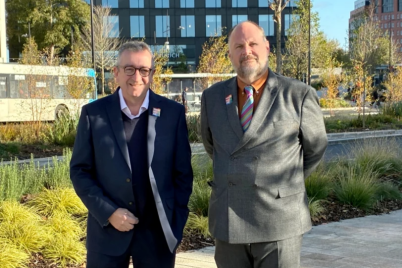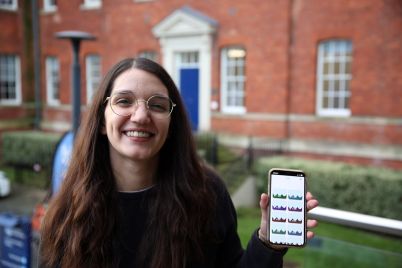With thousands of young people returning to classrooms this September, new research highlights overlooked areas within education that need critical improvements.
Hark’s Listen Up Report 2025 has revealed that almost a third of Year 9 students (30%) have already changed their mind about what job they want since starting secondary school, and over half say they know little to nothing about the next stage.
Only a staggering 10% of students feel fully in control of what comes next.
With students now settling back into school, it’s clear that in losing confidence, narrowing their aspirations, and having little understanding of next steps, Years 8 and 9 students need investment from brands and employers now, to make a real difference.
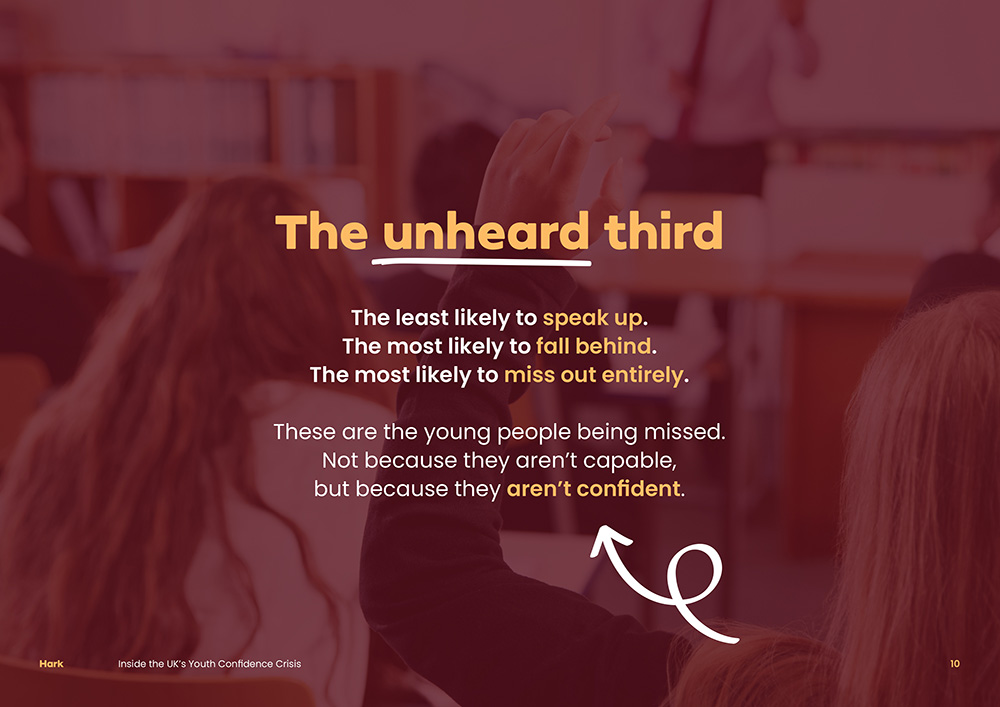
If students at this age lack clarity and confidence in future possibilities, it will limit the chance for them to explore their true potential and future possibilities.
We spoke to Hark’s co-founder, Kathryn McColl, to understand her views on why this age group are so often overlooked when it comes to early career engagement and guidance, and the importance there is to invest in them.
“Years 8 and 9 can fall into a gap. Schools and employers alike often concentrate career support at the later stages, around GCSE choices or post-16 decisions. But by then, many students have already narrowed their horizons. Our research shows a sharp dip in confidence at this age – they’re questioning themselves but haven’t yet had much exposure to the world of work. Because they’re often seen as being ‘too young’ for careers input, this crucial stage is often missed, and opportunities to broaden their aspirations early on are lost.”
Hark is a London-based education and youth agency with over 30 years’ experience creating powerful learning experiences and campaigns for schools, communities, and youth audiences, and in working with businesses that want to talk to these young people that they are targeting, they are making a genuine difference committing young people to thrive.
As their data shows a clear urgency to act now in working with Years 8 and 9, surrounding career development, they are now driving the need of business engagement in the younger classrooms with the new school year just starting.
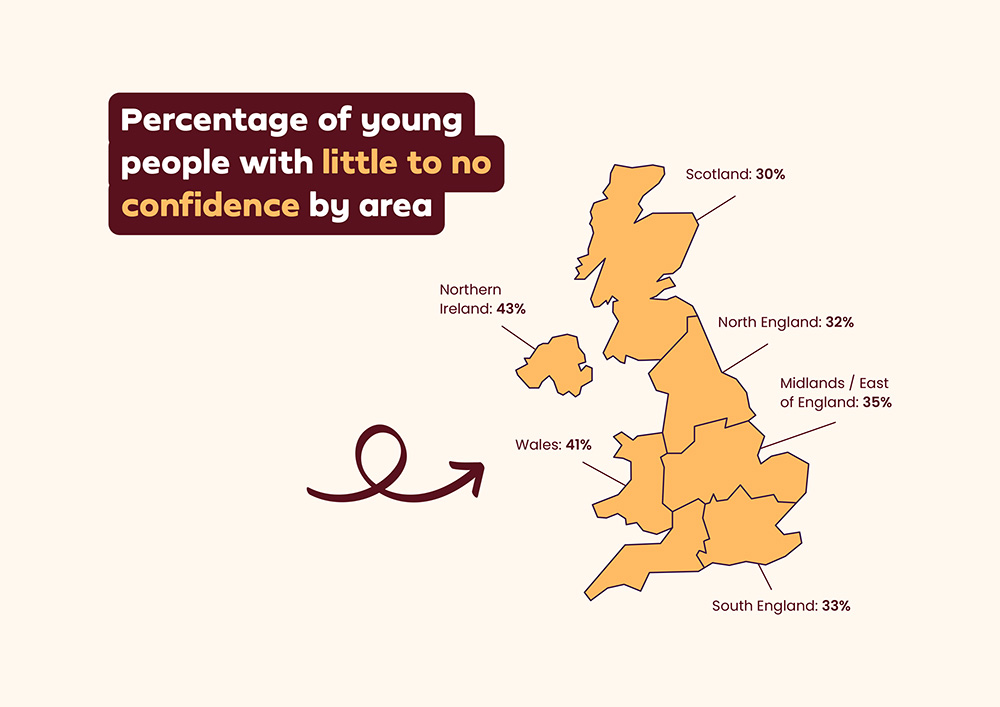
So, how can organisations open these opportunities for students to discover what their passions could lead to, and connect them with real-world examples of turning passions into professions?
Kathryn explains: “One of the most powerful things employers can do is make careers relatable. When young people hear real stories from people in work, particularly those who share their backgrounds or passions, it helps them see how their own interests connect to the future, for example, showing how skills in creativity, problem-solving, or technology translate into real jobs brings those pathways to life. It’s about helping them understand that their passions aren’t just hobbies but can be the foundation of meaningful careers.”
“Engagement doesn’t have to be complex but it does need to be early and consistent. That could mean offering school visits, workplace experiences, or mentoring programmes specifically designed for this age group. The key is exposure: the more students encounter role models, environments, and examples of careers, the more tangible the world of work feels. Our findings show that confidence dips when students don’t feel informed, so practical, interactive opportunities to ask questions and explore are vital to rebuilding that confidence.”
It is true that employers can play a vital role in linking their own work back to the interests and values that drive them, making their career paths more relatable and inspiring for young people.
If we want these students to aim high, and change results surrounding career progression for the better next year, it is essential that they are given tools, role models and control of their future in these middle years.
Kathryn concluded with what success would look like from businesses making a tangible difference in early years: “Success would mean young people in Years 8 and 9 feel informed, supported, and in control of their choices. Instead of reporting that they ‘know little to nothing’ about their next stage – as over half told us in our Listen Up Report – they would feel clearer about the options available, and more confident that their future is something they can actively shape. Ultimately, the goal is to keep ambition alive, so that young people don’t close down opportunities before they’ve had the chance to discover what’s possible.”
To read the full report, click here.



